Document Author
Year Published
Topic
- (-) Remove Allied Professionals filter Allied Professionals
- (-) Remove Trial Court Self-Help filter Trial Court Self-Help
- 100% Access to Justice (17) Apply 100% Access to Justice filter
- Self-Help Centers (17) Apply Self-Help Centers filter
- Linking a Self-Help Center to Other Services (16) Apply Linking a Self-Help Center to Other Services filter
- Reports, Evaluations, Best Practices, Surveys (8) Apply Reports, Evaluations, Best Practices, Surveys filter
- Research (8) Apply Research filter
- Courts (7) Apply Courts filter
- Articles & SRLN Briefs (5) Apply Articles & SRLN Briefs filter
- Reports (5) Apply Reports filter
- Simplification (5) Apply Simplification filter
- Evaluation (4) Apply Evaluation filter
- Strategic Planning (4) Apply Strategic Planning filter
- Best Practices for Self-Help Centers (3) Apply Best Practices for Self-Help Centers filter
- Triage (3) Apply Triage filter
- Judges (2) Apply Judges filter
- Legal Aid (2) Apply Legal Aid filter
- Private Bar (2) Apply Private Bar filter
- Automated Forms & E-Filing (1) Apply Automated Forms & E-Filing filter
- Best Practices (1) Apply Best Practices filter
- CCJ/COSCA Leadership (1) Apply CCJ/COSCA Leadership filter
- Forms (1) Apply Forms filter
- General Non-Profit Resources for Planning and Evaluation (1) Apply General Non-Profit Resources for Planning and Evaluation filter
- Impact of Self-Represented Litigant Innovations on Cost and Efficiency (1) Apply Impact of Self-Represented Litigant Innovations on Cost and Efficiency filter
- Justice for All (1) Apply Justice for All filter
- Justice for All Initiative hosted by the National Center for State Courts (1) Apply Justice for All Initiative hosted by the National Center for State Courts filter
- Justice Tech Entrepreneurs (1) Apply Justice Tech Entrepreneurs filter
- Law Libraries (1) Apply Law Libraries filter
- Libraries (1) Apply Libraries filter
- Scaling in Court Systems (1) Apply Scaling in Court Systems filter
- Surveys (1) Apply Surveys filter
- Technology (1) Apply Technology filter
- Triage & Service Portal (1) Apply Triage & Service Portal filter
State
Tags
Post date
Search results
SRLN Brief: Justice Corps (SRLN 2015)
Justice Corps is a program that works in affiliation with Americorps and has been of tremendous benefit to numerous courts, most especially in California. The California JusticeCorps program assists California courts in meeting the needs of self-represent ...
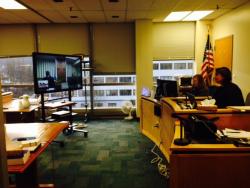
News: Alaska Court Uses Triage and Targeted Pro Bono Unbundled Legal Advice to Settle 80% of Contested Domestic Cases (Alaska State Court System 2015)
Various Supplementary Resources: Listen to a piece about ERP on NPR Learn more about the self-help services in Alaska for family law cases (opens as PDF) Early Resolution for Family Law Cases in Alaska's Courts Faster, Cheaper & As Satisfying: An ...
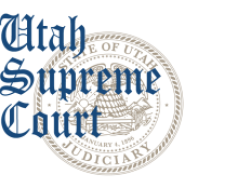
Report: Supreme Court Task Force to Examine Limited Legal Licensing (Utah 2015)
From the Introduction: Probably most Utah communities are not that different from “Middle City, USA,” a mid-size, mid-West community that was the location of the 2014 Community Needs and Services Study by the American Bar Association. 1) In a random sampl ...
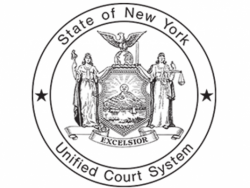
Report: Navigator Snapshot Report (New York 2014)
From the Executive Summary THE NEW YORK STATE COURT NAVIGATOR PROGRAM was begun in March 2014 following Chief Judge Jonathan Lippman’s announcement of the program in his February 2014 State of the Judiciary address. The Navigator Program was created by th ...
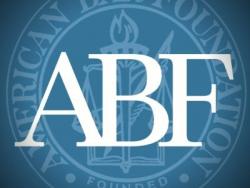
News: Limited Licensed Legal Technician Program (American Bar Foundation 2017)
The Washington State Supreme Court (courts.wa.gov) and the Washington State Bar Association (wsba.org) created an innovative program to expand the provision of legal services. Limited Licensed Legal Technicians (LLLTs) represent a new legal role that buil ...

News: National Evaluation And Classification Framework For Non-Lawyer Projects Released (Public Welfare Foundation 2015)
As those of us in the access to justice movement know too well, across the country thousands of people arrive at court every day both unrepresented and unsure of where to go. Many believe that solving this access crisis will require non-lawyer involvement ...
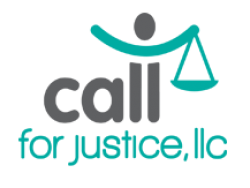
News: Call for Justice (Minnesota 2015)
Call for Justice, LLC is an innovative non-profit in Minneapolis that seeks to improve access to justice by connecting low-income people to existing legal resources, in partnership with United Way 211 and others. Through collaboration and training, Call f ...
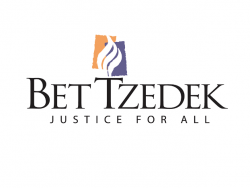
Report: Making Self-Help Work: Bet Tzedek’s Conservatorship Clinic (Bet Tzedek 2013)
Since 2007, Bet Tzedek Legal Services has been running a self-help conservatorship clinic in partnership with the Los Angeles Superior Court. Originally designed to serve 150 self-represented litigants per year, the program served more than 1,400 self-re ...
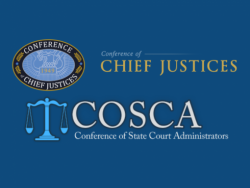
Resolution: In Support of Continuing Efforts to Meet Civil Legal Needs (CCJ/COSCA 2021)
In February of 2021, the Conference of Chief Justices and the Conference of State Court Administrators adopted Resolution 2 In Support of Continuing Efforts to Meet Civil Legal Needs. After extensive findings setting out the need, especially during the CO ...
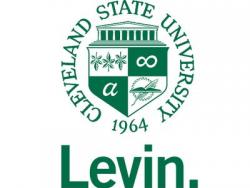
Article: Achieving Meaningful Partnerships with Nonprofit Organizations: A View from the Field (Mendel 2013)
This article addresses a topic of vital importance to the nonprofit sector: the dominant preference of institutional funders for visible partnerships and the reality that most of these are shallow relationships entered into by their participants to obtain ...